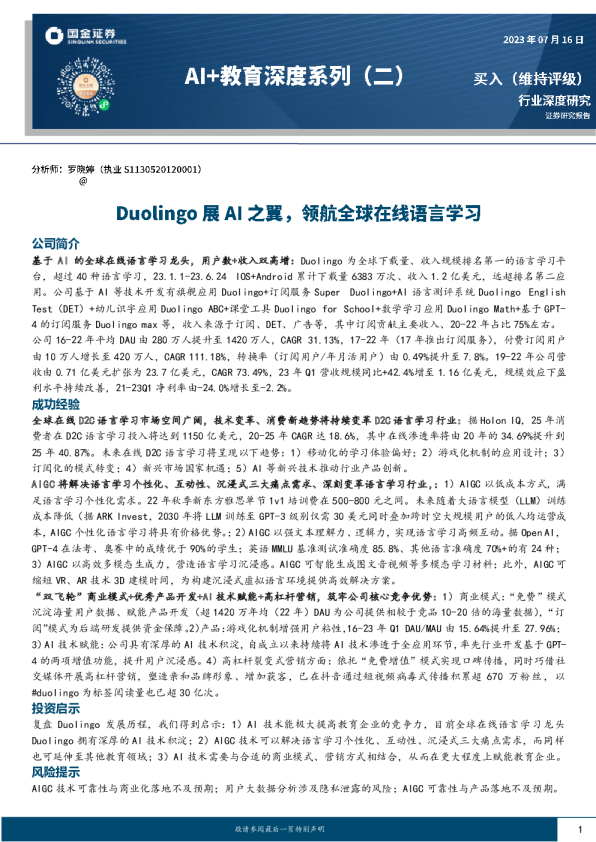2024年全球包容性语言文化指南报告
 AI智能总结
AI智能总结
RWS全球包容性语言文化指南 2024 1©2023RWS 1©2023RWS RWS全球包容性语言文化指南由RWS全球来自30多个国家的语言专家编写,作为全球首屈一指的由技术赋能的语言、内容和知识产权服务提供商,此指南的推出旨在为中国企业出海提供无偏见、包容性的英语风格指南和敏感词汇表。从多样性、平等和包容性(DEI)角度出发,重新审视并规范了英文敏感词汇的使用。通过推荐使用“人本语言”、避免偏见与冒犯性词汇、摒弃委婉语、尊重个体偏好等原则,助力企业在全球交流中构建更加和谐、尊重与包容的沟通环境。指南涵盖了以下五个章节: 1.无障碍性与健康Accessibility&Health 2.精神、宗教与信仰Spirituality,Religion,Belief 3.性取向、性别认同与性别关系SexualOrientation,GenderIdentity,GenderRelations 4.年龄、外貌与社会经济地位Age,Appearance,andSocioeconomicStatus 5.种族、民族与国籍Ethnicity,Race,andNationality 2©2023RWS 2©2023RWS Accessibility&Health 本章节旨在提高公众对无障碍环境与健康议题中语言使用的敏感度。其中在描述残障或疾病时建议使用“人本语言”(people-firstlanguage),它强调在描述与身体条件、健康状况、能力或其他特性相关的人时,将“人”置于描述的中心,而不是将这些特性或条件放在首位。这种语言风格旨在减少对个体的刻板印象和歧视,强调每个人都是独一无二的,其身份不应仅仅由他们的身体条件或能力所定义。另外应尽量避免使用委婉语,因为这可能会被视为居高临下、冒犯或回避谈论残疾的一种方式 •以人为本的语言:推荐使用“人本语言”(people-firstlanguage),即在描述残障或疾病时,将“人”置于首位,强调人的主体性和多样性,如使用“personwithadisability”而非“disabledperson” •避免偏见与冒犯:如“addict”、“AIDSvictim”、“brain-damaged”等存在偏见或冒犯性,建议替换为更中性的表述 •避免委婉语:在谈论残疾时,应避免使用委婉语,因为这可能会被视为居高临下、冒犯或回避谈论残疾的一种方式,如“handicapped”、“hearing-impaired”等,建议直接而尊重地描述个体情况 •特定术语的正确使用:如“late-termabortion”和“partial-birthabortion”,在医学有效性上具有争议,建议根据具体情况使用更准确的术语或描述。 •尊重个体偏好:强调在不确定受众偏好时,应倾向于使用更加普遍接受的术语,同时鼓励尊重个体的自我认同和表达意愿,避免无意识地造成冒犯。“People-firstlanguage"是一种更加包容、尊重和人性化的表达方式,它鼓励我们在谈论他人时,始终将“人”放在首位,尊重他们的独特性和个体性 3©2023RWS 4©2023RWS Accessibility&Health Term Notes UseInstead addict Thistermcanbereclaimedbytheindividual,butotherwiseprefer"personwithasubstanceusedisorder“可能带有偏见 personwithasubstanceusedisorder AIDSvictim Thistermcanimplythatapersonispowerless,withnocontrolovertheirlife.可能暗示一个人无能为力,无法控制自己的生活。 HIVpositive;personlivingwithHIV;personwithHIV theblind Avoiddescribingagrouponlyintermsoftheirdisabilitiesandnotaspeople.NotethatmanyindividualsintheBlindcommunityidentifyasblind/Blind(notethatthistermissometimescapitalized).However,becarefulaboutusing"blind"asacollectivenounforagroupofpeople,ortodescribethingsandsituationsinapejorativemanner.不要将“blind”用作一群人的集合名词,或以贬损的方式描述事物和情况。 Defertothepreferencesofthepersonorpeoplewithdisabilitiesyouaretalkingabout.Ifyoudonotknowthepreferencesofyouraudience,prefer"personwhoisblind/Blind". bonkers Thisisderogatorylanguagethatcontributestonegativeattitudesandstigmasurroundingmentalillness.一种贬损性语言,会助长对精神疾病的消极态度和污名化。 personwithamentalhealthcondition brain-damaged personwithanintellectualdisability;personwithatraumaticbraininjury. committedsuicide Avoidframingsuicideasanachievement(successful/unsuccessful)oracrime(committed).避免将自杀描述为完成(successful/unsuccessful)或罪行(committed)。 diedbysuicide 5©2023RWS Term Notes UseInstead crazy;crazed;insane Thisisderogatorylanguagethatcontributestonegativeattitudesandstigmasurroundingmentalillness.这是一种贬损性语言,会助长对精神疾病的消极态度和污名化。 personlivingwithmentalillness;personwithmentalhealthconditions.Ifreferringtosituationsandthings,removeandrewrite. cripple;crippled;crip Thesetermsareoffensivetopeoplewithphysicaldisabilities. 对身体有残疾的人来说是具有冒犯性。 personwithaphysicaldisability thedeaf Avoiddescribingagrouponlyintermsoftheirdisabilitiesandnotaspeople.ManyindividualsintheDeafcommunityidentifyasdeaf/Deaf(notethatthistermissometimescapitalized).However,becarefulaboutusing"deaf"asacollectivenounforagroup,ortodescribesthingsandsituationsinapejorativemanner.不要将“thedeaf”用作一群人的集合名词,或以贬损的方式描述事物和情况。 Defertothepreferencesofthepersonorpeoplewithdisabilitiesyouaretalkingabout.Ifyoudonotknowthepreferencesofyouraudience,prefer"personwhoisdeaf/Deaf". deaf-mute Peoplecanexpressthemselvesthroughwriting,signlanguage,vocaldevicesandotherways.Generallypeoplewithhearinglosshavefunctioningvocalcords,so"mute"isinappropriateandoffensive.人们可以通过书写、手语、发声装置和其他方式来表达自己。一般来说,听力受损的人声带是正常的,所以“mute”这一说法是不恰当的。 Defertothepreferencesofthepersonorpeoplewithdisabilitiesyouaretalkingabout.Ifyoudonotknowthepreferencesofyouraudience,prefer"personwhoisdeaf/Deaf","personwithahearingdisability","personwhousesadevicetocommunicate",etc. Accessibility&Health 6©2023RWS Term Notes UseInstead defective;deformed Thiscanbeusedtodescribeobjects,butneverpeople.可以用来描述物体,但不能用来描述人 Removeandrewrite disabledperson Ingeneral,preferpeople-firstlanguageunlessthepeopleyouaretalkingaboutpreferotherwise.一般来说,除非你所谈论的人有特别的偏好,否则最好使用以人为本的语言。避免使用冒犯性语言 personwithadisability freak Avoidoffensivelanguage,evenasajoke.避免使用冒犯性的语言,即使是开玩笑。 Removeandrewrite handi-capable Avoideuphemismswhenspeakingaboutdisability,asitcanbeperceivedascondescending,offensiveorawayofavoidingtalkingaboutdisability.Usepeople-firstlanguage.在谈论残疾时,应避免使用委婉语,因为这可能会被视为居高临下、冒犯或回避谈论残疾的一种方式。请采用“人本语言”来表达。 personwithadisability handicapped accessible(whenspeakingaboutinfrastructure);withadisability(withspeakingaboutaperson) handicappedparking/bathroom Avoidusing"handicapped"torefertoaccessibleinfrastructure.避免使用“handicapped”来指代无障碍基础设施 accessibleparking/bathroom harelip Thistermisoffensiveasitimpliesthemedicalconditionmakessomeoneresembleahare.具有冒犯性,因为它暗示了某种医疗状况使人看起来像一只兔子。 cleftlip Accessibility&Health 7©2023RWS Term Notes UseInstead hearing-impaired Avoideuphemismswhenspeakingaboutdisability,asitcan




